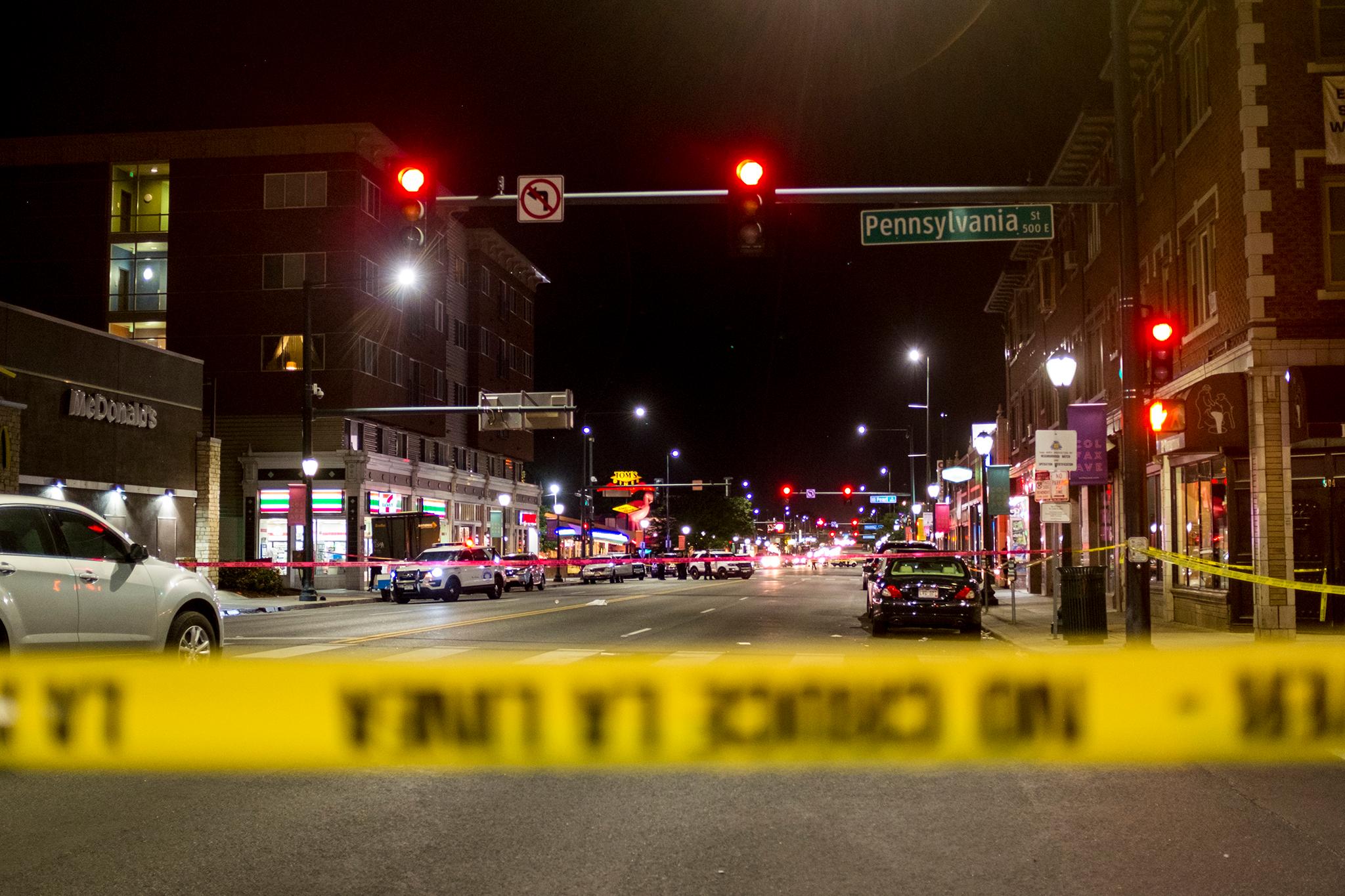During a press conference on Tuesday, Denver Mayor Michael Hancock and Chief of Police Paul Pazen framed a recent mass shooting at a westside park as a symptom of a violent-crime spike they hope to suppress before it gets out of control.
The drive-by shooting happened in broad daylight at Byers & Pecos Park in Valverde on Sunday afternoon. A suspect or suspects fired at a family get-together and a music video shoot, Pazen said, injuring six children, ages 3 to 17, and three adults. All victims are expected to survive.
"What happened Sunday is absolutely unacceptable," Hancock said. "Someone indiscriminately firing into a gathering in a park, notwithstanding who was there, who may have been hit, injured and possibly killed by their decision, is absolutely unacceptable."
The Denver Police Department has made no arrests in the crime. Investigators are making "significant progress" but struggling to get details from witnesses -- including family members of the victims, Pazen said. He called on them and other witnesses to anonymously divulge information and receive a cash reward.
Violent crime -- murder, rape, robbery and aggravated assault -- is up 11 percent so far this year over 2019, according to city documents. Denver has seen 52 murders so far in 2020, up from 34 last year.
On Tuesday, officials blamed the violence on the fallout from the COVID-19 pandemic and civil unrest related to racist policing. People have stolen 422 guns citywide this year, which is about 100 more stolen firearms than last year, Pazen said.
Crimes are rooted in the social and economic effects of people being out of work and students being out of school, while "racial tension" rises, said John Nicoletti, a psychologist who contracts with the Denver Police Department.
"We've got these two things going, and we got no profile, no road map for any of these things," Nicoletti told reporters. "And what's happening is violence begets violence."
Nicoletti suggested that the city is at risk if this behavior goes unchecked. He compared the situation to a so-called "Columbine contagion," which describes the proliferation of mass school shootings after the Littleton massacre.
Chief Pazen said residents can expect more police officers and social workers around the city, especially on Saturday nights.
Pazen said his officers will follow the data, which says shootings happen most often on Saturdays and Wednesdays in "hot spots" like far northeast Denver, East Colfax, West Colfax, and in the South Federal Boulevard corridor.
The police department's flex comes amid calls for fewer police officers on the streets and widespread distrust of law enforcement. While the killing of George Floyd and other people of color in police custody sparked civil unrest around the U.S., the local police and sheriff departments have a history of violence as well.
Police officers will continue to ride along with social workers and mental health professionals to connect nonviolent offenders with services that can address the root causes of crime, Pazen said. But people shooting people will not and should not receive such empathy, he said.
"It is critical that this police department and this community rebuild and strengthen relationships," Pazen said. "It's vitally important for our community, particularly our vulnerable community in Denver, the folks that are disproportionately impacted by violent crime ... It is not okay -- it is unacceptable -- for a 3-year-old, an 11-year-old and a 12-year-old to be shot in our city."












